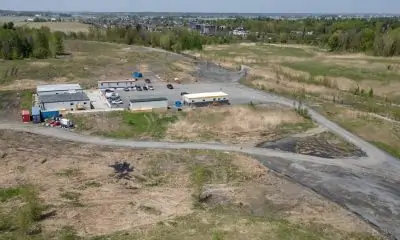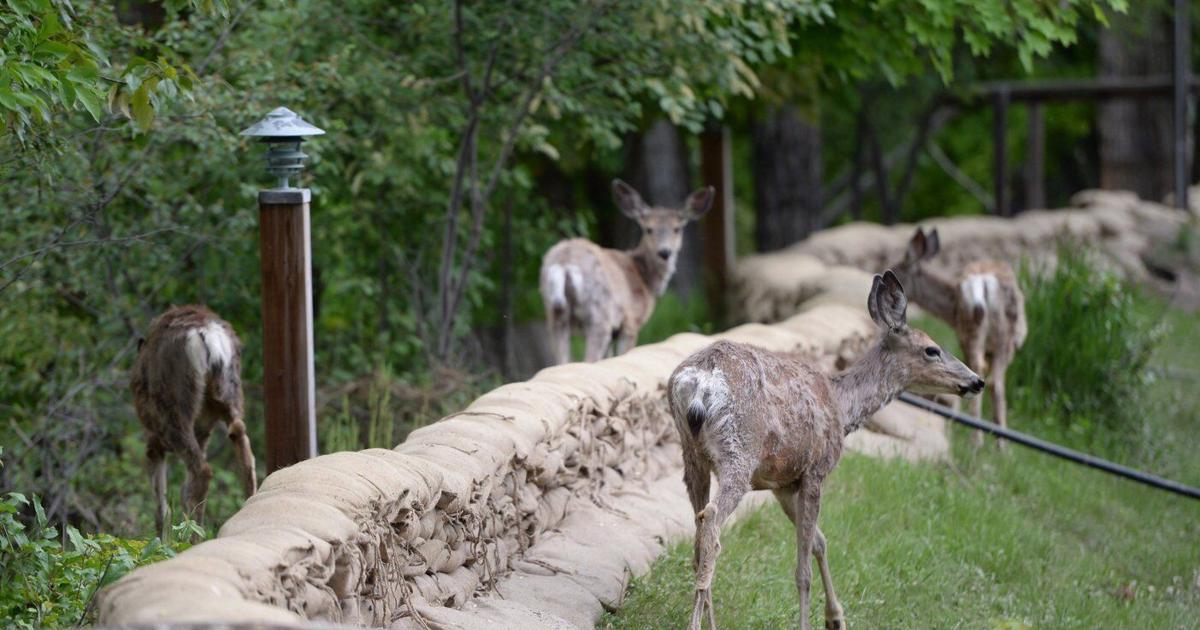HALIFAX – An investigation into how the Canadian Coast Guard responded to a Nova Scotia vessel in distress two years ago raises questions about why one fisherman died after a towing operation went awry.
In an investigation report released Thursday, the Transportation Safety Board says the fishing boat Mucktown Girl was returning to Canso, N.S., with five crew aboard on March 11, 2022, when it was disabled by electrical problems.
The captain called for a tow from the coast guard as a storm was closing in.
After a seven-hour voyage, the Canadian Coast Guard Ship Jean Goodwill reached the drifting boat and attached a 300-metre tow line to the smaller vessel’s bollard. But as the weather turned rough, the bollard broke off six hours into the recovery mission.
At that point, the decision was made to let the fishing crew ride out the storm aboard the Mucktown Girl rather than attach another tow line that could damage the boat.
By 6 a.m. on March 13, wind speeds had reached 70 to 90 kilometres per hour. The waves were as high as 10 metres — twice the height of the fishing boat, which was then taking on water. Crew aboard Jean Goodwill relayed the mayday distress call from the fishing boat, which was 44 kilometres from shore.
Minutes later, amid heavy rain and dense fog, the five fishermen donned immersion suits and jumped into a life raft. In response, the coast guard crew lowered a scramble net — a type of rope ladder — over the side of the 77-metre medium icebreaker.
But the water was so rough, the net was washed back onto the ship several times. And as the ship rolled in the big swells, two coast guard crew members were injured and a number of others were almost swept overboard.
“As a result of the environmental conditions, communications broke down and affected the co-ordination of the (rescue effort),” the report says.
At the time, the air temperature was about 12 C, but the water temperature was only 4 C.
Four of the fishermen, including the captain, jumped from the life raft into the frothing water and managed to climb the ladder to safety. But the fifth crewman, 35-year-old Jeremy Hart of Windsor Junction, N.S., drifted to the stern of the coast guard ship and disappeared.
The father of two boys was pulled from the water five hours later by the crew aboard a Cormorant search and rescue helicopter, but he was later declared dead at a Cape Breton hospital.
The report from the independent safety board says there are no Canadian regulations for the towing points on fishing vessels.
“Without specific guidance for assessing the risks to the towed vessel and its crew, the (coast guard) may underestimate risks and tow vessels with crew on board in hazardous conditions, resulting in an increased likelihood of injuries and loss of life,” the report says.
But the report does not call for any changes, aside from updating the coast guard’s towing waiver, which explains the responsibilities of those involved and the risks.
More importantly, the report highlights the fact that once the bollard broke, it became clear there were no plans in place to remove the crew from the fishing boat.
“Without comprehensive contingency planning for towing disabled vessels, risks to rescuers as well as crews of vessels under tow may be increased,” the report says.
The safety board’s investigation found that the coast guard’s search and rescue (SAR) training typically involves the use of small, fast-rescue craft rather than larger vessels like the Jean Goodwill.
“There is limited vessel-specific SAR training such as the use of scramble nets,” the report says. “(This) training does not reflect the realistic conditions and equipment in a rescue operation, where factors can change unpredictably. For example, training is carried out in good weather only, and in … overboard exercises, only one person at a time needs rescue.”
As for the scramble net, the report says it was not suitable for the deplorable conditions that faced the coast guard crew in 2022.
“Although scramble nets do not have specified restrictions for use, they are difficult to climb in rough conditions,” the board says. “They are also difficult to climb in an immersion suit, even in calm weather, and are not usable if a person is injured or incapacitated.”
That’s why the coast guard has already installed a so-called rescue scoop on the Jean Goodwill. The hydraulic device uses an extendable arm to dip a scramble net into the water on its side, allowing the operator to scoop up victims.
The device has been used on other coast guard vessels in the past, and the federal agency is looking at acquiring more.
“Without emergency drills using realistic scenarios, and their subsequent evaluation, vessel crews may not have the most effective equipment and may not be well prepared to use it in the safest and most effective manner,” the report says.
This report by The Canadian Press was first published Nov. 21, 2024.
































